Higher Education Re-envisioned
Integrated Clusters:
“We’re creating the education of the future.”
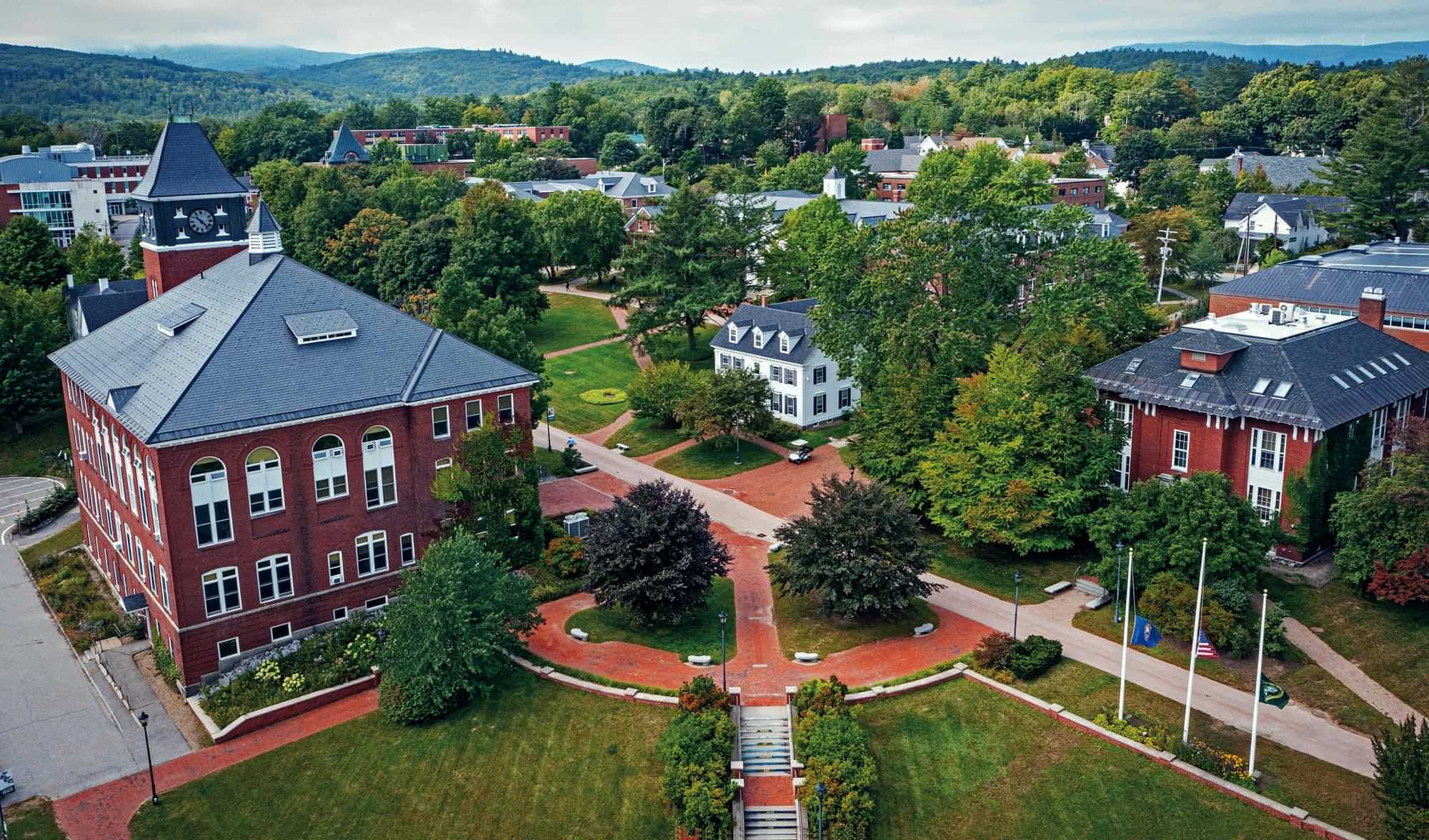
Integrated Clusters:
“We’re creating the education of the future.”
Upon arrival in 2015, President Donald Birx’s goal was to make Plymouth State a model, twenty-first century residential university. Through the connected concepts of Integrated Clusters and Open Laboratories, he maintained that the University could educate students in an interdisciplinary, project-based manner, empowering them to address societal problems.
Substantial progress has been made. Integrated Clusters engage students in interdisciplinary inquiry and research, exposing them to project-based learning opportunities that extend well beyond the classroom while embracing Open Education principles that make textbooks more affordable, classrooms more inclusive, and education more mutual.
“Clusters are a new way of thinking about what’s important to know when you graduate so that you can have a high level of impact, work effectively in teams, see the big picture, and solve real-world problems,” Birx says. “We’re developing innovative, entrepreneurial, creative synthesizers who collect and verify information to solve problems across disciplines. By building the connective tissue around students’ main skill sets they can be effective in their personal and professional lives, whatever their path.”
The Habits of Mind Experience (HoME) program, formerly known as the General Education program, demonstrates the myriad ways in which scholarship can be brought to bear. The program parallels students’ entire PSU journey and includes First-Year Experience, Directions, and Connections courses and an Integrated Capstone project. The four Habits of Mind (Purposeful Communication, Problem Solving, Integrated Perspective, and Self-Regulated Learning) are central to PSU’s teaching. “They are the foundation of our approach,” says Birx.
While reimagining an institution from the ground up involves challenges, the campus is now well on its way to manifesting the Cluster ethos both academically and administratively. Birx contends that the University is delivering a more meaningful and cost-effective education because of it.
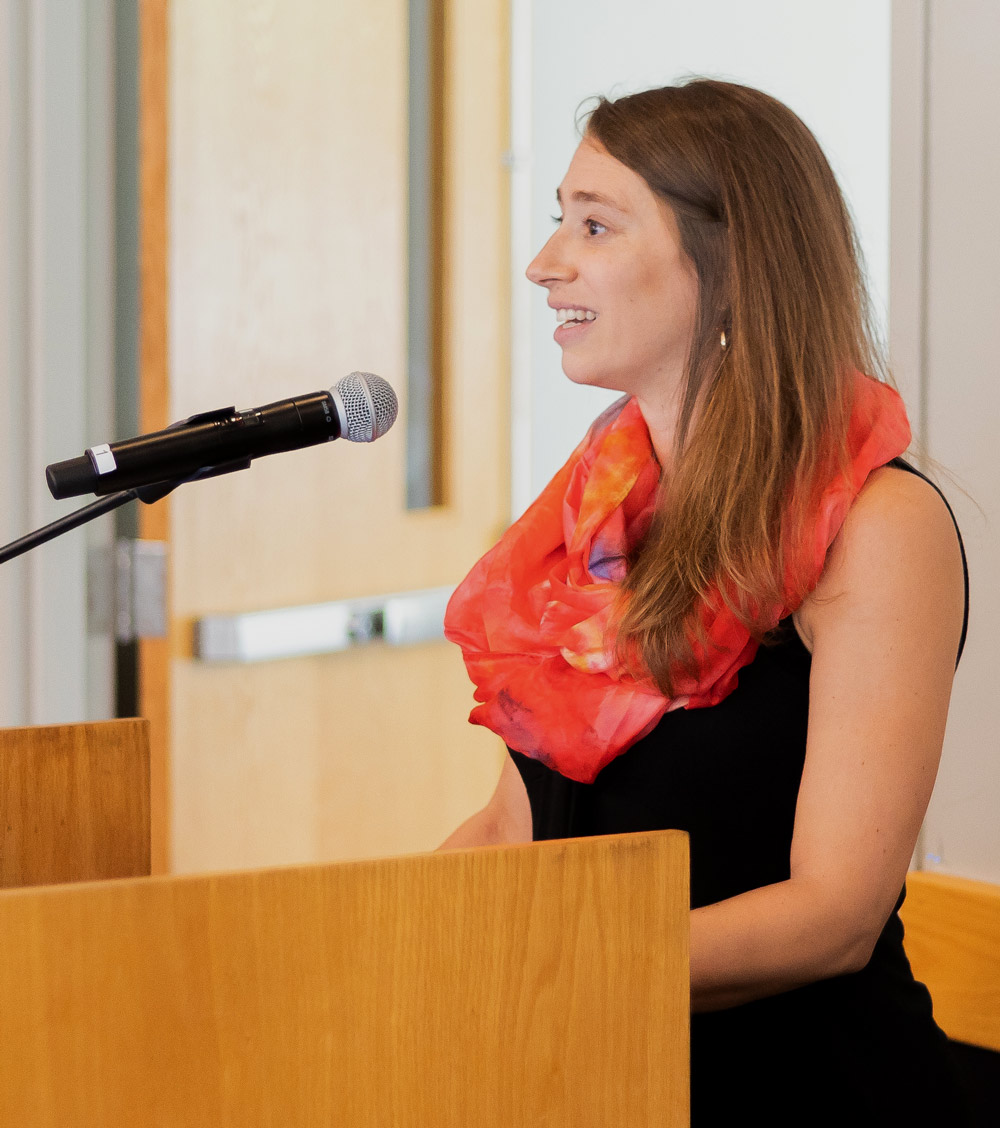
“In my opinion, Cluster Learning is the most effective and engaging method of teaching in higher education,” says Goode. “Students contribute to their own learning by producing new knowledge in and out of the classroom. They’re not just reading about issues; they’re weighing in on how they would contribute to a field or solve a problem.”
Working across disciplines and looking at problems from multiple perspectives provide valuable skills. “The more capable you are of collaborating with someone outside your field of expertise, the more successful you’ll be in addressing real-world problems,” says Goode. “Our students tackle problems and practice the kind of work they want to do once they have graduated. Cluster Learning challenges students and faculty alike to think across disciplines to better address the thorny, unsolved questions of our time.”
Plymouth State has long been known for cultivating critical thinking skills and Cluster Learning builds on that historical strength. “When parents visit campus and hear about Cluster Learning, the lightbulb really goes off,” Birx observes. “They understand we’re developing students’ ability to apply their learning to solve real-world problems.”
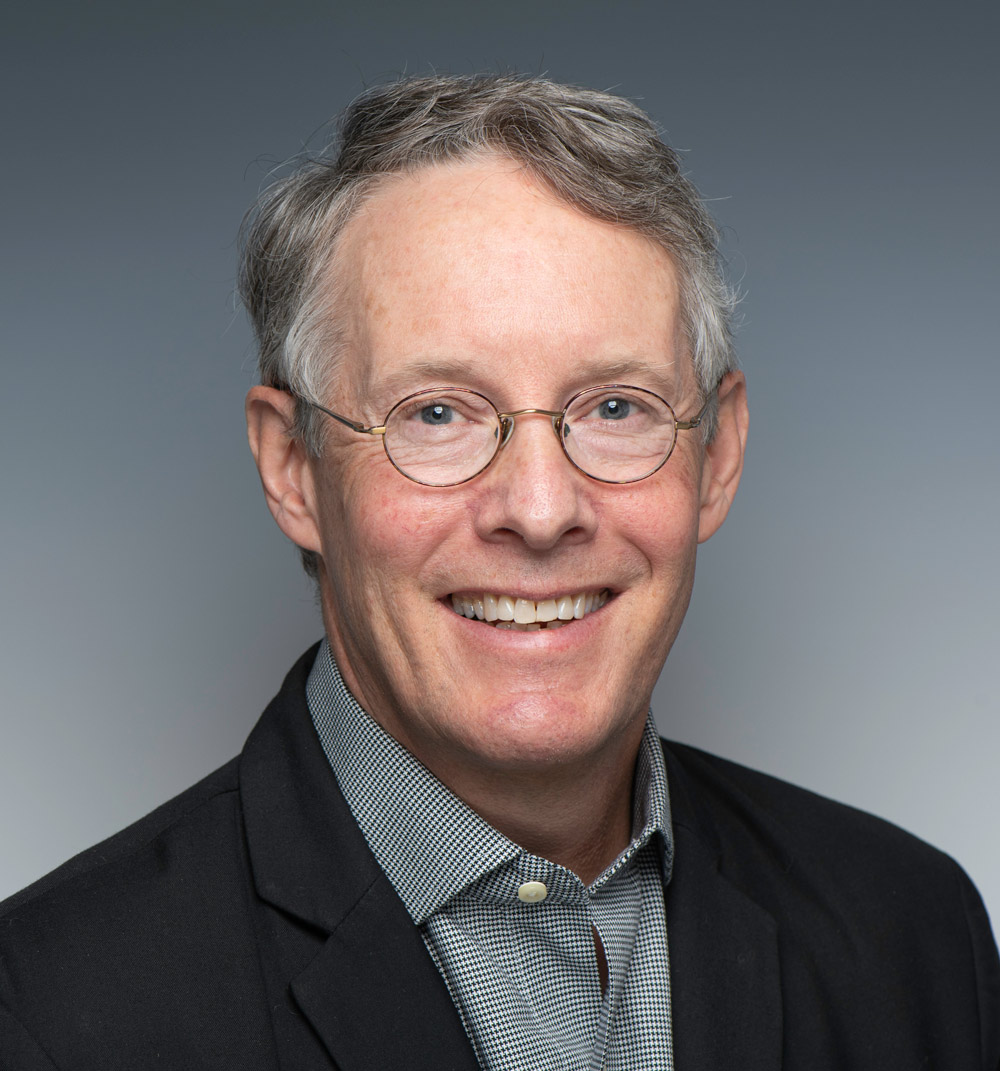
“Cluster Learning is a lot like maturity learning,” White says. “The more exploring undergraduates do, the better chance they have to find their life’s calling. Gaining the ability to cross-pollinate learning from textbooks out into real-world situations is critical. Cluster Learning cultivates this skill.”
Educating students in this manner will prove to be a critical differentiator for Plymouth State, he asserts. “The University has many first-generation students and faculty who are deeply committed to their work. Through Clusters, students learn to think and work across disciplines, which is incredibly powerful. Plymouth State is stretching the way thinking occurs and offering students an opportunity to own their education.”
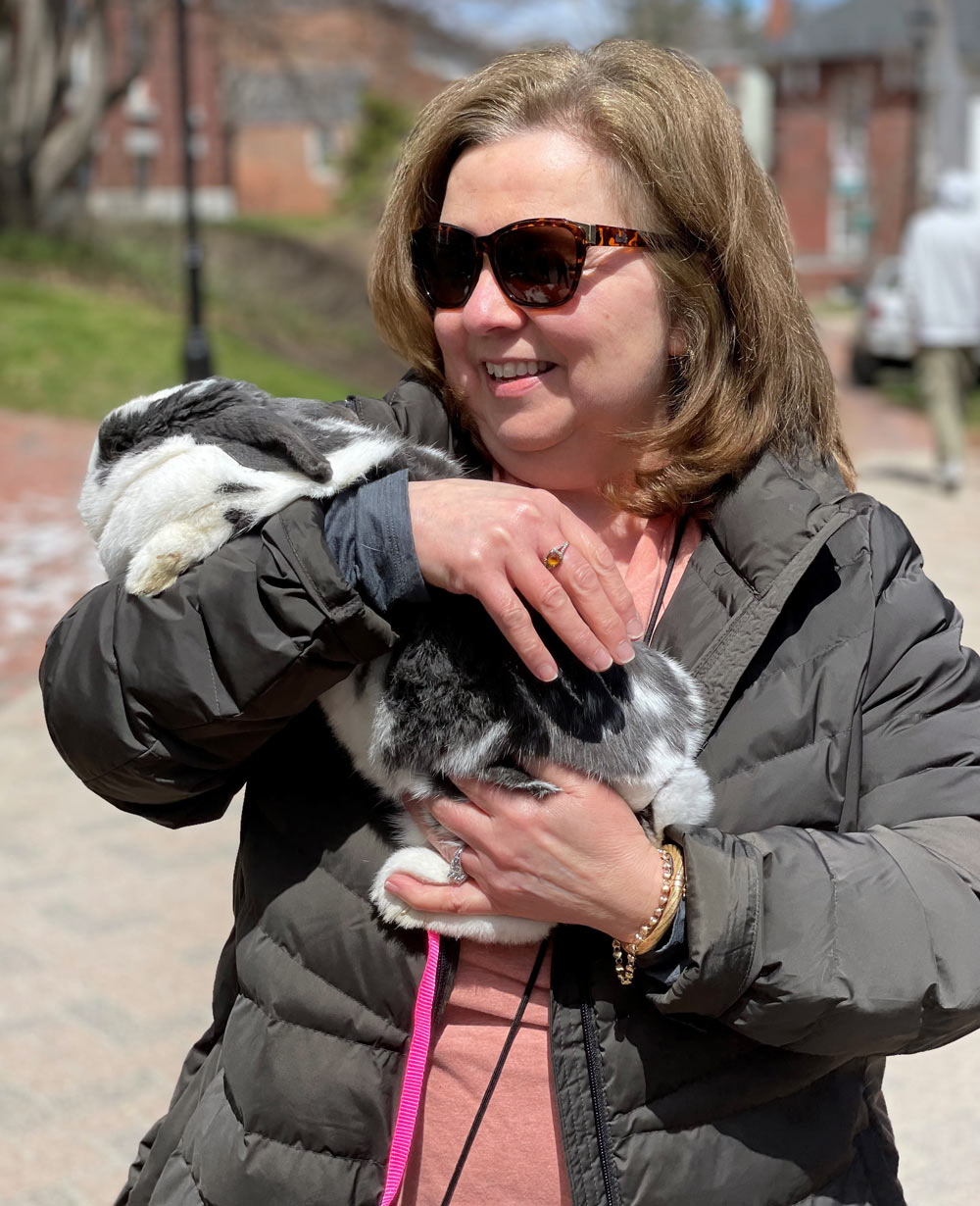
“‘Climb Above Addiction’ was started five years ago in conjunction with an events marketing course led by Professor Bonnie Bechard,” Naro explains. “The class produces a big annual event to raise money for our restorative justice court diversion program, and they do an amazing job—last year they raised $11,000.”
Students experience the power of community collaboration to solve real-world problems, adds Shanahan. “They learn how to build an event from the ground up and to shift and pivot in response to challenges like the pandemic, which pressed them to take a traditionally in-person event to an entirely virtual platform. They’re passionate about collaboration, and they make an amazing contribution to our organization and community.”
CADY is also working with Professor Suzanne Gaulocher and her public health students in a new Young Adult Prevention Strategies initiative to address drinking. “The students did a tremendous job creating and administering a survey on the incidence of binge and high-volume drinking,” says Shanahan. “We received nearly 400 student responses and now we’re working on a program to mitigate that behavior.”
These collaborations are profound for both parties. “Students build our capacity to work on important social issues in a very meaningful way,” says Naro. “They also have the opportunity to use their education to get involved in their community and perhaps identify career paths early on.”
Collaborations like these attracted new Provost and Vice President of Academic Affairs Nathaniel Bowditch to President Birx’s vision of the Cluster model. Bowditch is energized by the possibilities. “This vision of an education that builds problem solvers…to say, ‘OK, how do we equip students for the real world and make them active, productive, successful, engaged global citizens and problem solvers, is so important, because we need problem solvers.”
For President Birx, encouraging tomorrow’s creative problem solvers is crucial. “The world today is extremely different than it was 50 years ago, before the internet,” he observes. “Nowadays, it’s a bit redundant to pack information into students’ minds when they have access to so many tools that expand their reach. Instead, it’s vital to provide youth with a conceptual framework to gather, synthesize, and apply information.
“Today’s students are multitaskers, not linear thinkers,” he continues, “and our charge is to help them focus those multitasking abilities so that they can converse across disciplines and regions to solve global challenges.” The challenges of the twenty-first century are all multidisciplinary, Birx argues, so students must learn how to connect with those in other fields, sharing knowledge and applying skills collaboratively to meet the challenges that confront our world economically, ecologically, and politically.
“We’re creating the education of the future and it’s critical that we do so,” Birx concludes. “My goal is to create an educational environment that maintains US leadership in all areas, and I believe that Plymouth State is on the path to build a student body that can do just that.” ■ Lori Ferguson
Re-Envisioning Higher Education
The following are just a few examples of how Plymouth State is making its mark while expanding opportunities for students.
2022
Business NH Magazine honors PSU as Business of the Year, noting that “higher education leaders have been paying close attention to the ambitious experiment” unfolding on our campus.
A $1 million federal grant is aiding in the construction of a new robotics laboratory that will provide advanced training, equipment, and tools for Cluster project-based learning.
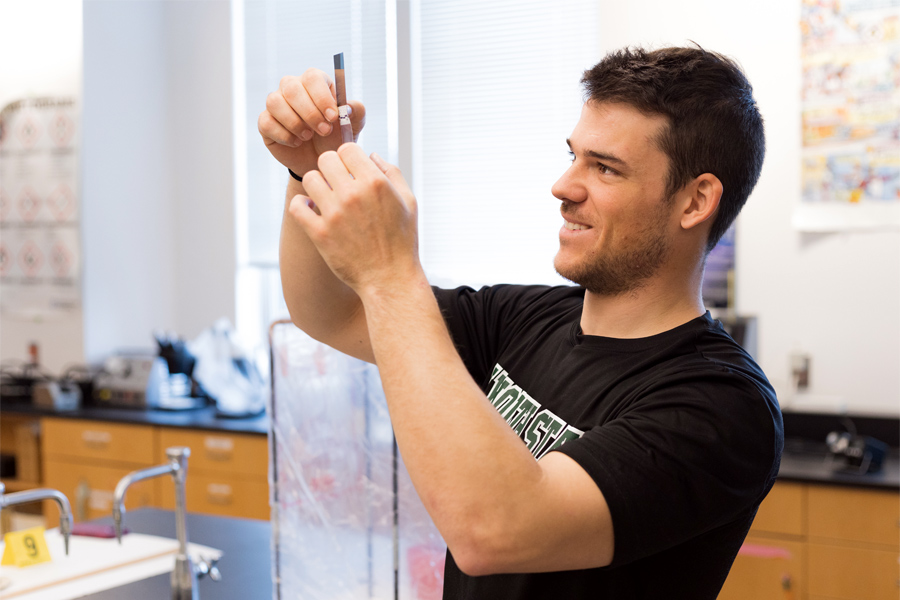
The Morgridge Strength and Performance Lab opens as a teaching lab for a wide range of health and science academic programs available through the Cluster Learning model.
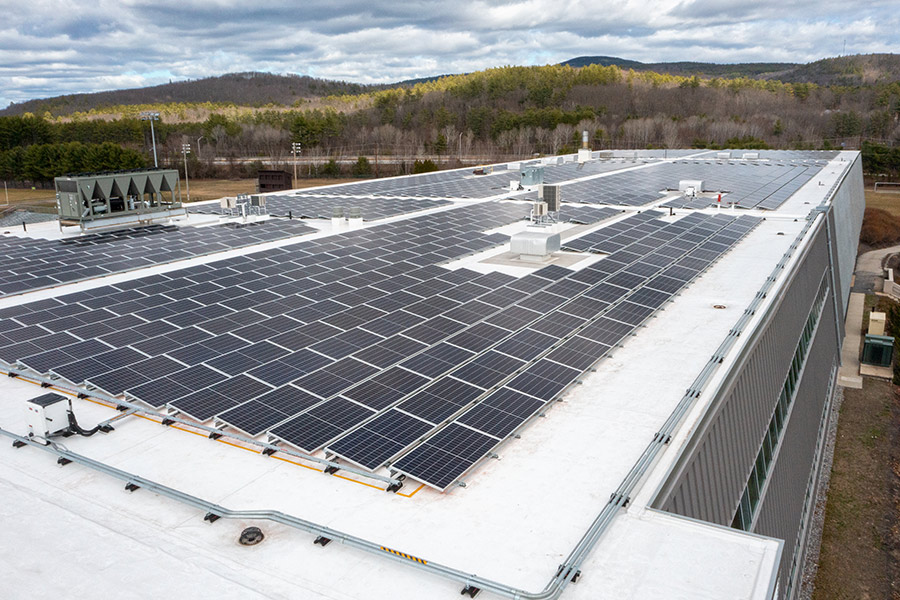
Business partnerships such as that with the New Hampshire Electric Co-op are helping PSU achieve its pledge to be more sustainable. Our many green initiatives include solar cells on top of the PE Center and on Hyde Hall, and vehicle-to-grid and charging stations on campus as well as electric cars that students can use.
Revised Strategic Goals are emphasizing Teaching and Clusters, Student Success, Diversity and Community, and a Sustainable University.
The General Education program helps students develop and practice four Habits of Mind that equip students well for life and work after college.
Open Education is one of the three pillars of Cluster Learning and we’ve achieved more than $1 million in savings for students and families.
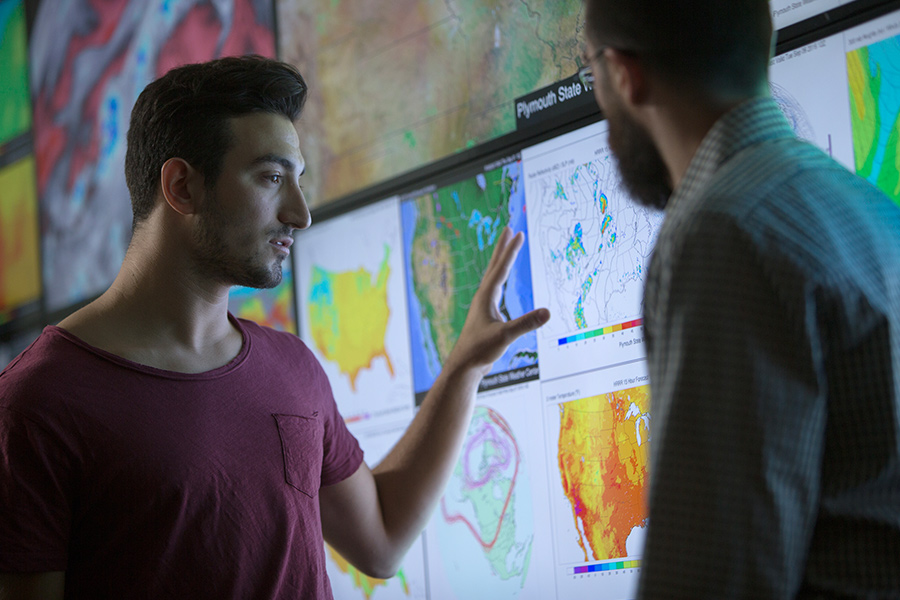
Cluster bachelor’s degree major in climate studies, the first of its kind in New Hampshire and one of only a few in the nation, introduced.
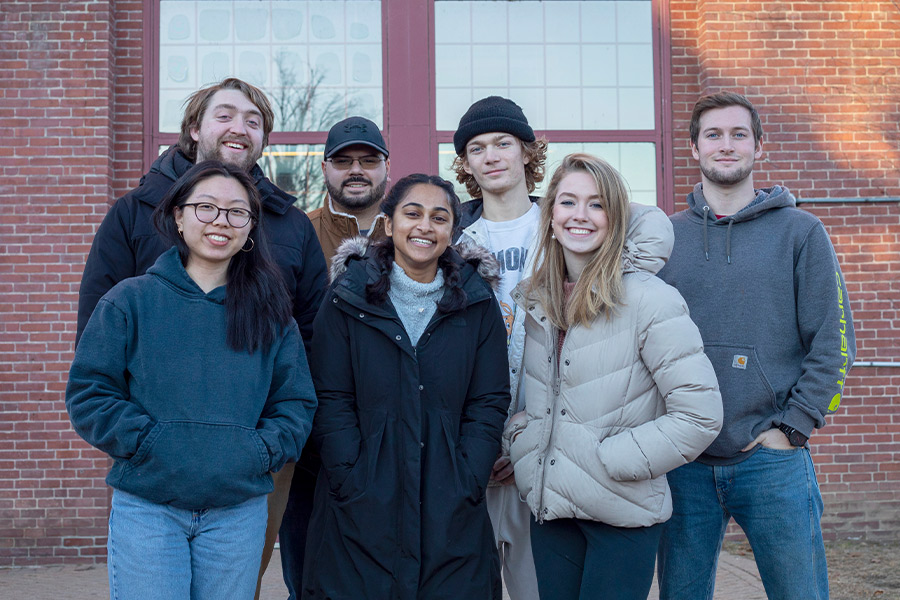
The Plymouth Marketing and Design Agency course, with its focus on project-based work that extends beyond the walls of the classroom, interdisciplinarity that involves students from different majors, and use of low- or no-cost course materials, exemplifies the Cluster Learning model.
Redesigning Higher Education: A Small New England Public University Changes Higher Education. Book authored by President Donald Birx, Professor Annette Holba, and Executive Associate to the President Patricia Bahr tells the story of how PSU is changing the face and future of higher education for the 21st century.
PSU’s leadership on the I-93 corridor includes helping expansion of internet services and working with nonprofits and businesses across the state.
Cluster model contributes to PSU being recognized as one of only 119 US colleges and universities to hold the Carnegie Foundation Community Engagement Classification.
The Open Learning & Teaching Collaborative, or “CoLab,” opens as a dynamic hub of activities, workshops, and presentations. A major area of focus is the development of Cluster Learning.
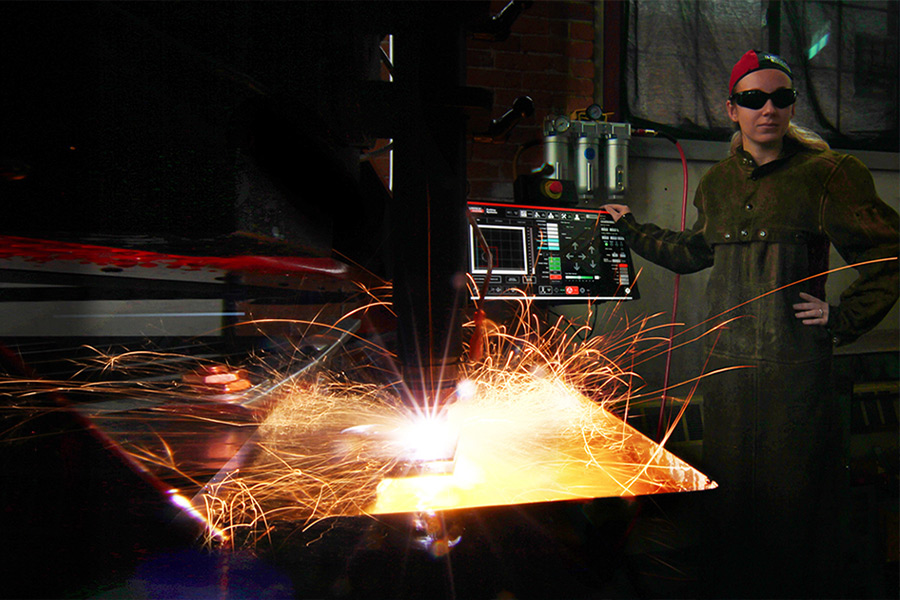
The Draper & Maynard Makerspace, a Cluster Open Laboratory boasting state-of-the-industry high-tech equipment, opens for learning, experimenting, and collaborating.
The Chronicle of Higher Education highlights PSU’s Clusters transformation.
Upon arrival in 2015, President Donald Birx’s goal was to make Plymouth State a model, twenty-first century residential university. Through the connected concepts of Integrated Clusters and Open Laboratories, he maintained that the University could educate students in an interdisciplinary, project-based manner, empowering them to address societal problems.
Substantial progress has been made. Integrated Clusters engage students in interdisciplinary inquiry and research, exposing them to project-based learning opportunities that extend well beyond the classroom while embracing Open Education principles that make textbooks more affordable, classrooms more inclusive, and education more mutual.
“Clusters are a new way of thinking about what’s important to know when you graduate so that you can have a high level of impact, work effectively in teams, see the big picture, and solve real-world problems,” Birx says. “We’re developing innovative, entrepreneurial, creative synthesizers who collect and verify information to solve problems across disciplines. By building the connective tissue around students’ main skill sets they can be effective in their personal and professional lives, whatever their path.”
The Habits of Mind Experience (HoME) program, formerly known as the General Education program, demonstrates the myriad ways in which scholarship can be brought to bear. The program parallels students’ entire PSU journey and includes First-Year Experience, Directions, and Connections courses and an Integrated Capstone project. The four Habits of Mind (Purposeful Communication, Problem Solving, Integrated Perspective, and Self-Regulated Learning) are central to PSU’s teaching. “They are the foundation of our approach,” says Birx.
While reimagining an institution from the ground up involves challenges, the campus is now well on its way to manifesting the Cluster ethos both academically and administratively. Birx contends that the University is delivering a more meaningful and cost-effective education because of it.

Professor Abby Goode agrees and has replaced her traditional American Literature survey course with ‘Rethinking Early American Literature.’ Instead of simply reading texts, students contribute to, edit, and annotate a nationally recognized open access anthology. “They are contributing to our body of knowledge, which is compelling for them,” Goode notes. She also teaches an environmental humanities course in which students from various majors draw on art, philosophy, literature, environmental studies, and more to confront ecological crises.
“In my opinion, Cluster Learning is the most effective and engaging method of teaching in higher education,” says Goode. “Students contribute to their own learning by producing new knowledge in and out of the classroom. They’re not just reading about issues; they’re weighing in on how they would contribute to a field or solve a problem.”
Working across disciplines and looking at problems from multiple perspectives provide valuable skills. “The more capable you are of collaborating with someone outside your field of expertise, the more successful you’ll be in addressing real-world problems,” says Goode. “Our students tackle problems and practice the kind of work they want to do once they have graduated. Cluster Learning challenges students and faculty alike to think across disciplines to better address the thorny, unsolved questions of our time.”
Plymouth State has long been known for cultivating critical thinking skills and Cluster Learning builds on that historical strength. “When parents visit campus and hear about Cluster Learning, the lightbulb really goes off,” Birx observes. “They understand we’re developing students’ ability to apply their learning to solve real-world problems.”

Businesses and nonprofits are responding favorably as well. Andrew White ’09MBA, president of Comptus—a producer of wind and industrial environmental sensors, transmitters, and controls—has witnessed the power of Cluster Learning firsthand as student mentor and teaching lecturer in the business program.
“Cluster Learning is a lot like maturity learning,” White says. “The more exploring undergraduates do, the better chance they have to find their life’s calling. Gaining the ability to cross-pollinate learning from textbooks out into real-world situations is critical. Cluster Learning cultivates this skill.”
Educating students in this manner will prove to be a critical differentiator for Plymouth State, he asserts. “The University has many first-generation students and faculty who are deeply committed to their work. Through Clusters, students learn to think and work across disciplines, which is incredibly powerful. Plymouth State is stretching the way thinking occurs and offering students an opportunity to own their education.”
Executive Director Deb Naro ’02G and Outreach Director Emily Shanahan of CADY, Inc. (Communities for Alcohol- and Drug-Free Youth) work extensively with Plymouth State students and faculty on initiatives to prevent and reduce substance misuse. “It’s a bi-directional experience,” says Naro. “The students build our capacity to do important, life-saving work in the community while experiencing the personal gratification of making a difference at a powerful level. We learn from their energy and insights, and they learn from us.”

“‘Climb Above Addiction’ was started five years ago in conjunction with an events marketing course led by Professor Bonnie Bechard,” Naro explains. “The class produces a big annual event to raise money for our restorative justice court diversion program, and they do an amazing job—last year they raised $11,000.”
Students experience the power of community collaboration to solve real-world problems, adds Shanahan. “They learn how to build an event from the ground up and to shift and pivot in response to challenges like the pandemic, which pressed them to take a traditionally in-person event to an entirely virtual platform. They’re passionate about collaboration, and they make an amazing contribution to our organization and community.”
CADY is also working with Professor Suzanne Gaulocher and her public health students in a new Young Adult Prevention Strategies initiative to address drinking. “The students did a tremendous job creating and administering a survey on the incidence of binge and high-volume drinking,” says Shanahan. “We received nearly 400 student responses and now we’re working on a program to mitigate that behavior.”
These collaborations are profound for both parties. “Students build our capacity to work on important social issues in a very meaningful way,” says Naro. “They also have the opportunity to use their education to get involved in their community and perhaps identify career paths early on.”
Collaborations like these attracted new Provost and Vice President of Academic Affairs Nathaniel Bowditch to President Birx’s vision of the Cluster model. Bowditch is energized by the possibilities. “This vision of an education that builds problem solvers…to say, ‘OK, how do we equip students for the real world and make them active, productive, successful, engaged global citizens and problem solvers, is so important, because we need problem solvers.”
For President Birx, encouraging tomorrow’s creative problem solvers is crucial. “The world today is extremely different than it was 50 years ago, before the internet,” he observes. “Nowadays, it’s a bit redundant to pack information into students’ minds when they have access to so many tools that expand their reach. Instead, it’s vital to provide youth with a conceptual framework to gather, synthesize, and apply information.
“Today’s students are multitaskers, not linear thinkers,” he continues, “and our charge is to help them focus those multitasking abilities so that they can converse across disciplines and regions to solve global challenges.” The challenges of the twenty-first century are all multidisciplinary, Birx argues, so students must learn how to connect with those in other fields, sharing knowledge and applying skills collaboratively to meet the challenges that confront our world economically, ecologically, and politically.
“We’re creating the education of the future and it’s critical that we do so,” Birx concludes. “My goal is to create an educational environment that maintains US leadership in all areas, and I believe that Plymouth State is on the path to build a student body that can do just that.” ■ Lori Ferguson
Re-Envisioning Higher Education
The following are just a few examples of how Plymouth State is making its mark while expanding opportunities for students.
2022
Business NH Magazine honors PSU as Business of the Year, noting that “higher education leaders have been paying close attention to the ambitious experiment” unfolding on our campus.
A $1 million federal grant is aiding in the construction of a new robotics laboratory that will provide advanced training, equipment, and tools for Cluster project-based learning.

The Morgridge Strength and Performance Lab opens as a teaching lab for a wide range of health and science academic programs available through the Cluster Learning model.

Revised Strategic Goals are emphasizing Teaching and Clusters, Student Success, Diversity and Community, and a Sustainable University.
The General Education program helps students develop and practice four Habits of Mind that equip students well for life and work after college.
Open Education is one of the three pillars of Cluster Learning and we’ve achieved more than $1 million in savings for students and families.

Cluster bachelor’s degree major in climate studies, the first of its kind in New Hampshire and one of only a few in the nation, introduced.

The Plymouth Marketing and Design Agency course, with its focus on project-based work that extends beyond the walls of the classroom, interdisciplinarity that involves students from different majors, and use of low- or no-cost course materials, exemplifies the Cluster Learning model.
Redesigning Higher Education: A Small New England Public University Changes Higher Education. Book authored by President Donald Birx, Professor Annette Holba, and Executive Associate to the President Patricia Bahr tells the story of how PSU is changing the face and future of higher education for the 21st century.
PSU’s leadership on the I-93 corridor includes helping expansion of internet services and working with nonprofits and businesses across the state.
Cluster model contributes to PSU being recognized as one of only 119 US colleges and universities to hold the Carnegie Foundation Community Engagement Classification.
The Open Learning & Teaching Collaborative, or “CoLab,” opens as a dynamic hub of activities, workshops, and presentations. A major area of focus is the development of Cluster Learning.

The Draper & Maynard Makerspace, a Cluster Open Laboratory boasting state-of-the-industry high-tech equipment, opens for learning, experimenting, and collaborating.
The Chronicle of Higher Education highlights PSU’s Clusters transformation.
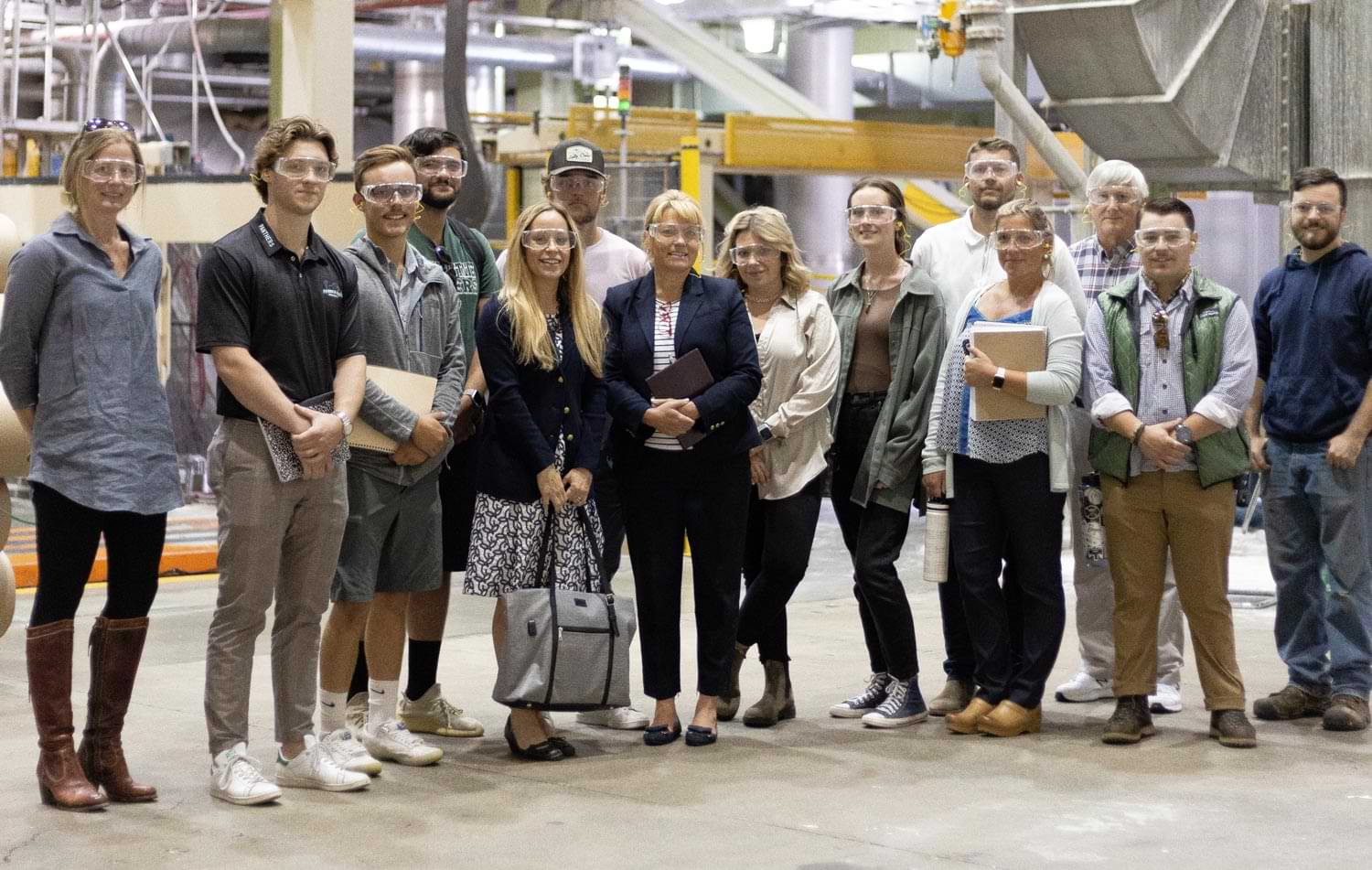
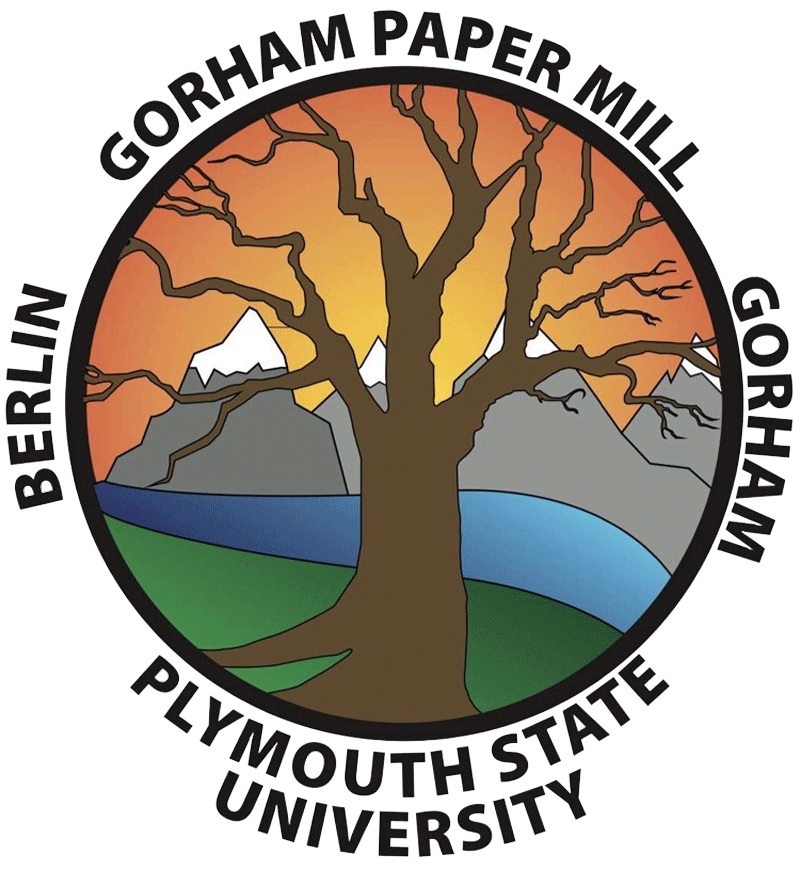
Professor of Business Law Chantalle Forgues invited 10 students from various disciplines, including marketing, pre-law, finance, sociology, and others, to participate in a semester-long course, Special Topics in Law and Entrepreneurship. The course is co-led by North Country native and PSU Instructor of Business Lisa Perras and falls under the Innovation and Entrepreneurship Cluster. In keeping with PSU’s pioneering Cluster Learning Model, the course draws upon the expertise of community partners and resources from other disciplines such as economics, accounting, land use and French-Canadian culture.
“As students explored the regulatory and zoning landscape of Gorham and Berlin and the potential economic and community benefits of this project, a common thread throughout was the importance of team building and community consensus building,” Forgues says. “This collaboration aimed to identify the actual needs of the community and ways to maximize redevelopment.”
Over the past three months, students researched the permissible uses of the property and what would be possible to develop there, and polled community members and stakeholders about how they would like the land to be redeveloped. Students created the Facebook page “What Would You Do with the Lagoon?” to engage the community.
On December 8, the students presented their findings and recommendations for the best use of the property to WMPC. State and local government officials and other stakeholders were invited to attend a public presentation at the PSU campus.
“This special course is a perfect example of PSU’s Cluster Learning Model in action,” says President Donald Birx. “Not only were students engaged in interdisciplinary study—working alongside peers from various disciplines—but by engaging students with the greater community they gained critical hands-on experience while building a network of contacts they’ll need to work and succeed in the real world. PSU was pleased to work alongside WMPC on this exciting initiative.”
This project reflects PSU’s commitment to educate students to study and care for the environment, live a sustainable lifestyle, and to promote sustainability to the campus community and the world beyond. PSU has made sustainability initiatives a priority first and foremost with its Sustainability Studies program, which incorporates interdisciplinary fields such as business, the social sciences, the arts and humanities, environmental science, and public health.
Behrens Investment Group acquired the mill assets of the former Gorham Paper and Tissue Mill out of bankruptcy on December 31, 2020, preserving more than 70 jobs in the community and sparing the mill from liquidation and permanent closure. White Mountain Paper crafted a strategic plan focused on implementing key initiatives relating to energy efficiency and environmental sustainability. These strategic initiatives will allow WMPC to be one of the most environmentally responsible paper mills in the country, while remaining competitive, reducing economic volatility, and allowing for future growth.
Additional information about this project is available in an online press release.
